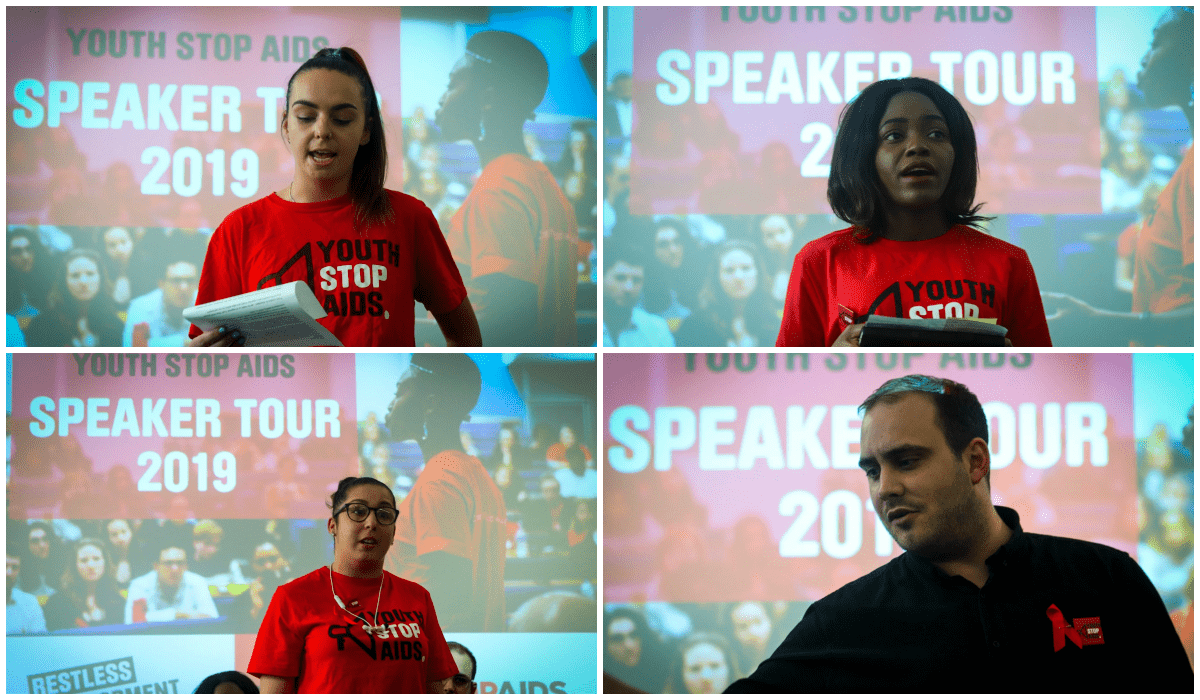“ZERO” was the powerful opener for the Youth Stop AIDS campaign talk in Leeds. Zero new HIV infections. Zero
The talk was eye-opening in so many ways – I for one wasn’t aware that we now have the means to make this vision a reality. Our knowledge on these matters is negligible. Looking back at the very basic and limited sex education we all got in Secondary school, it is no wonder why the stigma and misconceptions surrounding HIV and AIDS is so high. It’s an easy thing to fear something we don’t know anything about and the ostracisation that HIV-positive people face shows why campaign groups like Youth Stop AIDS are so important.
The talk opened with the campaign visions and information about the Global Fund which has saved 27 million lives since it’s
The stigma that comes with even the word AIDS is so high and so damaging for those living with the disease. Most commonly it’s perceived as a solely sexually transmitted disease. It is but it can also be transmitted in other ways as well. Grace, one of the activists spoke about her experience being diagnosed with AIDS when she was 14 and how her community shunned her as a result. Being so young, she described how her peers and even adults around her all snubbed her and looked down on her thinking she was lesser. The education surrounding sex and associated diseases
Alex, another speaker, was diagnosed at 24 and again explained how a lack of education made it harder to understand himself but also for other people to understand. A member of the LGBT+ community, he argued “dating is a minefield” for him and others living with HIV because so many people don’t have the right knowledge on the subject. This is despite the fact Alex isn’t actually able to transmit HIV anymore as a result of his treatment – something highlight in campaigns like Undetectable=Untransmissable. He still found people would stop replying to him when they found out he had HIV. Having your life so drastically turned around with a diagnosis like this is made no easier with ignorant people then treating you differently for it.
This is what Youth Stop AIDS is all about preventing. Their aim is to eradicate AIDS by 2030 but in the
Advancements such as these are so important and demonstrate how we do have the ability to fight this disease if we keep pushing for it. PrEP isn’t currently available on the NHS in the UK but with the stigma surrounding the disease diminishing and with campaign groups lobbying the government it could be. It is widely available in Scotland and at certain clinics in Wales and Northern Ireland. In England, 10,000 are currently on a trial. This is a good start.
Grace and Alex’s stories are both stark reminders of what else has to be done to help others in their situation and their bravery in telling it demonstrates the importance of such a cause. It’s not hard to get involved with this at all and the cause is so worthwhile.
We need to end the stigma and end the disease. This is a global responsibility which needs to stay at the forefront of our minds and our agenda.

